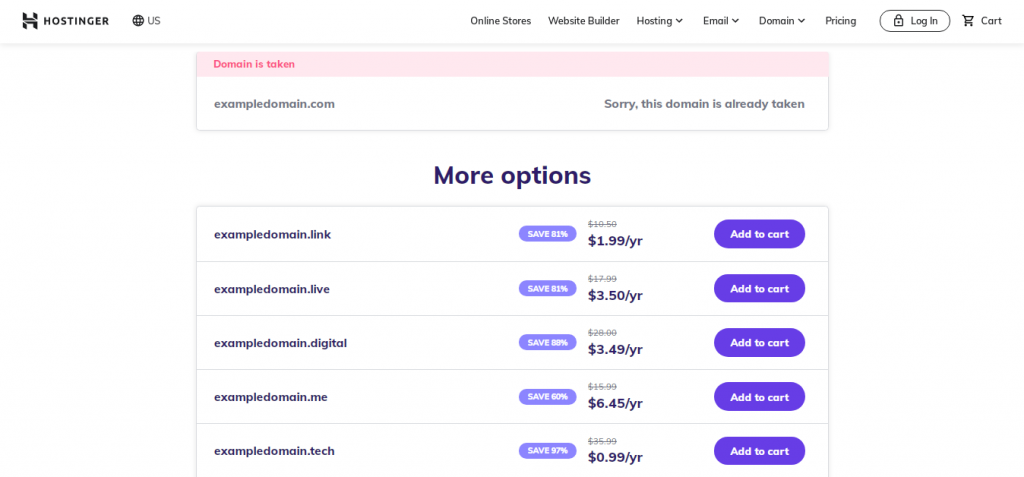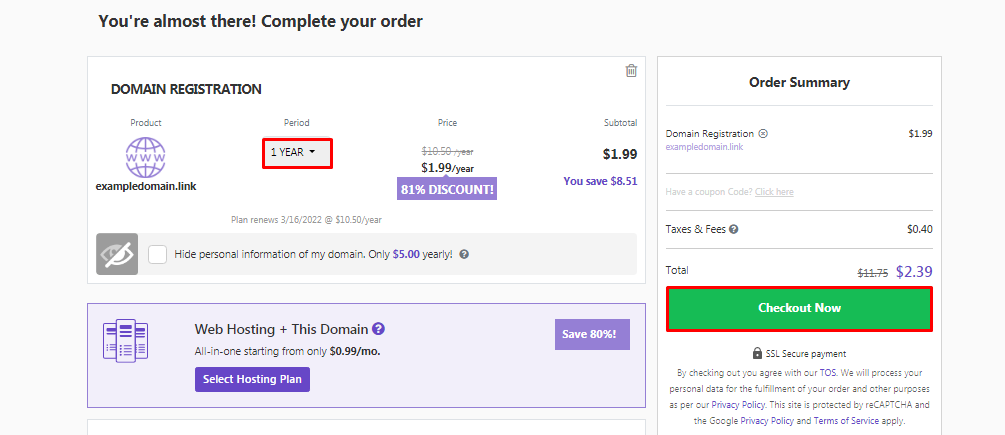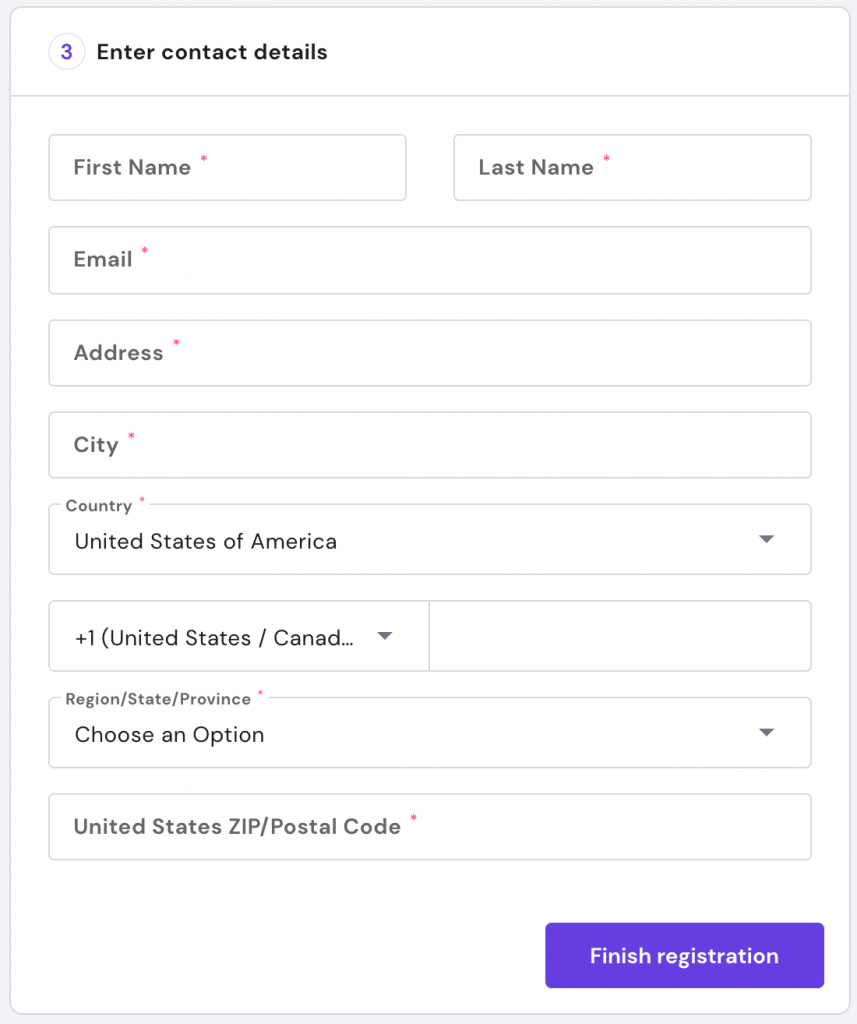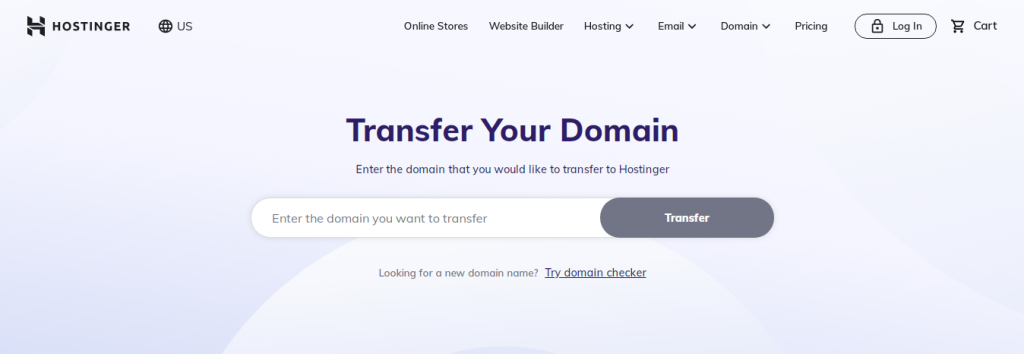Web hosting Services and Domain names
Choosing an appropriate name is very important. First and foremost, when it involves domain names, attempt to stay away from the silly, stupid, ridiculous or clever. Keep your name simple and make it something your customers can remember if they lose the link to your business website.
Take note that, while your name on GeoCities or AOL may seem like the least expensive way to go, it's going to also get you dropped from certain search engines. Some search engines ignore domain addresses that reside on these ‘free servers’ or on the ‘cheap’ servers.
Even if your site is recognized and considered by search engines, knowledgeable domain name that uses your primary company name or associated words is likely to get more attention and be considered as a stable business by your prospective customers.
Purchasing domain names aren't that expensive which cost about $100 and there are many companies that can register the name for you, provided it's available and has not already been used by another company.
Using one among your keywords in your domain name can increase your score on some search engines. for instance , solderingirons.com might be more effective as Electric-soldering-irons.com, if that name was available.
You might also choose to establish more than one domain name using keywords and then link your ‘doorway’ domain sites to your primary site. But you'll have to pay for each of the domain name and also the monthly hosting fees. It all depends on the sort and size of your business and your competition.
Keep in mind that some search engines disregard ‘doorway’ sites. So put a minimum of a page of content on the doorway site with some useful information and then link it to your primary site. But don’t design it as an empty page. the opposite reason being, you'll have one, three, five, or maybe more email addresses that all contain your business name, and provides your business a professional feel. When customers get emails from dominicstone@solderingirons.com they feel as if they're dealing with a stable, professional business operation.
No need for patrons to understand how you manage all your email boxes on your domain. they only need to feel your business is dependable and reputable.
This topic has been explained at www.hostinger.com:
The main difference between domain and hosting is that domain is the address, which allows a visitor to easily find your website online, while hosting is where the website files are stored. In order to have a functioning website, you need both – a domain and hosting space.
Since both elements work hand-in-hand, it’s crucial to understand the differences between them before creating a website.
This article will cover everything you need to know about domain and hosting – how they work and how they differ from each other.
Domain Names and Domain Registration
A domain name refers to the URL people type in a web browser’s address bar to access your site. In other words, domain names offer a convenient way for people to access websites.
Without it, they would have to use a numerical label assigned to every website and server on the internet, also known as an IP address.
Generally, domain names are comprised of two main parts – a second-level domain (SLD) and a top-level domain (TLD). Second-level domains usually consist of words or phrases, while top-level domains are the predetermined extensions that follow.
For example, in the case of google.com, the second-level domain is google, and .com is the TLD.
To get a domain name for your website, you need to register it first. Domain registration is the process of reserving a name on the internet for a certain period. Usually, you need to renew the license once per year, but you can pay up in advance for up to 10 years for the domain to be registered under your name.
Companies or organizations that sell and manage domain name registrations are called domain registrars. Domain registrars are listed under ICANN (Internet Corporation for Assigned Names and Numbers), an authority that coordinates and manages domain databases on the internet.
However, before moving on to domain registration with a domain registrar, it is essential to check your custom domain’s availability. At Hostinger, we offer a domain name search tool to help you out.
A domain checker will show the availability of your chosen domain and various domain extensions, along with their prices. If the domain is taken, the domain checker will offer several alternatives. If domain name you like is taken, try a domain name generator to help you come up with something unique!
Types of Domain Extensions and Pricing
Domain extensions or top-level domains (TLDs) refer to the last part of a domain name.
As the name suggests, TLDs claim the highest spot on the internet’s DNS (domain name system) hierarchy. There are hundreds of TLDs available on the web, which are maintained and regularly updated by the IANA (Internet Assigned Numbers Authority).
IANA categorizes TLDs into four main categories based on their purpose, and location, including:
- gTLDs (Generic Top-Level Domains). The most commonly used domain name as it fits any website purposes. This includes the well-known .com, .org, and .net. as well as other unique names such as .xyz, .biz, and .tech.
- sTLDs (Sponsored Top-Level Domains). These domains are restricted to certain organizations and groups. Common examples include .gov for governmental sites, .edu for educational institutions, and .post for postal services.
- ccTLDs (Country Code Top-Level Domains). It notes a certain part of the territory or location under the ISO codes. For example, .us for USA, .in for India, .es for Spain, .id for Indonesia, and .co.uk for United Kingdom.
- Infrastructure Top-Level Domain. It consists of only one domain name, which is .arpa, representing the ARPA (Address and Routing Parameter Area). This domain name is primarily reserved to solve internet-infrastructure issues. Ideally, TLD should represent the purpose of your site. For example, a .club domain should be used for the sites of clubs, .org – for organizations, .com – for commercial websites and so on.
If you want to register a domain name, it can be beneficial to know all of your options to find the perfect extension. Below are some TLDs Hostinger offers along with their prices:
| TLD | Registration | Renewal | Transfer |
|---|---|---|---|
| .com | $8.99 | $13.99 | $9.99 |
| .co.uk | $6.99 | $8.99 | $1.99 |
| .info | $3.99 | $19.99 | $13.99 |
| .net | $12.99 | $13.99 | $12.99 |
| .xyz | $1.99 | $13.99 | $9.99 |
You can see that you can get a cheap domain registration with as little as $0.99. The offer includes some relatively new domain name extensions, such us .online, .shop, or .tech domains. There are many more extensions to choose from that are not listed here, such as .site and .store domains. To check out whether the extensions you want are available, simply access our domain name checker. You might also want to check out some of the options to get a free web domain.
Once you find a suitable option, it is time to register it. To register a domain name with Hostinger, click on the Add to Cart button next to your chosen domain.

Next, select the registration period and click Checkout Now.

Once you have purchased the domain name, complete the domain registration by accessing the Home section on your hPanel and clicking the Setup button. It will direct you to the Domain Order Setup page, where you’ll be required to fill in the domain registration details.

Finally, claim your domain name’s ownership through the verification email sent to your registered email address.
Make sure to complete this process within 15 days, or your domain name will be suspended. To activate it after this period, locate the email and verify your contact information.
Additionally, you might want to consider getting domain privacy protection to hide your contact details on WHOIS lookup tools.
What Is Web Hosting?
In this tutorial, you’ll learn what web hosting is and everything you need to know before creating a website.

Web hosting services allow you to publish the website on the internet. If you buy a hosting service from a provider, you will have a portion of their web servers to store your website’s files and data.
Whenever someone types in your website’s domain name, your web hosting provider will be responsible for sending its content to the visitor.
Web hosts also provide beginner-friendly tools for all users so that you can manage the website with little to no technical skills. Besides, a hosting provider usually offers customer support, server maintenance, and website builders to help users create and maintain their site.
In addition to storing website files, a web host protects the server and your website files from malicious attacks.
Some web hosting companies, such as Hostinger, also provide domain registration to help you create a website even quicker and more efficiently.
That said, it is essential to do thorough research before choosing a hosting company. There are a few factors you need to consider, including:
- User-friendliness. Every web host provides a control panel to manage your web hosting account. Make sure the dashboard offered is easy-to-use and has extensive functionality.
- Server speed and uptime. Choose a web hosting company that ensures fast loading speeds and offers an excellent uptime guarantee so that your site experiences minimum downtime.
- Pricing and plans. Before purchasing a hosting plan, it helps to consider the add-ons and renewal fees that would fit your budget in the long-term.
- Customer service. Pick a hosting company with a reliable support team to give you immediate assistance when running into a technical issue.
Hostinger utilizes LiteSpeed Web Servers to optimize users’ site performance. Moreover, we offer a 99.9% uptime guarantee and global customer support working around the clock to guide you if you come across any technical difficulties.
Signing up for web hosting on Hostinger is quite easy. Just sign up using your email and pick one of the web hosting plans available. Additionally, we offer a 30-day money-back guarantee in case you are not satisfied with the service.

Types of Website Hosting and Pricing
Now let us explore what types of hosting there are.
Hostinger offers several hosting plans suitable for anyone who wants to create a website – whether it is a personal blog or an eCommerce site. Here’s a quick overview:
- Shared web hosting. Starting from $1.99 to $16.99/month, shared hosting is where multiple websites share the same physical server and have a set amount of storage and resources. Shared hosting is the most affordable option out of all and is perfect for small businesses or personal websites.
- VPS hosting. A physical server is virtually separated into multiple partitions, giving users a private environment with their dedicated resources. This hosting type works great for websites with medium-to-high traffic. VPS hosting plans start from $2.49 to $77.99/month.
- Cloud hosting. It uses a cluster of different servers to host the website. Whenever one server experiences downtime, another server quickly steps in to keep your site running. Cloud hosting is the ideal solution for sites that need high-availability, such as eCommerce stores. Starting prices range from $9.99 to $29.99/month.
- Hosting for WordPress. It provides an optimized environment, performance, and security for hosting WordPress sites. This hosting plan offers WordPress-related features and customization options, so you can easily manage and grow your site. WordPress hosting plans start from $1.99 to $11.59/month.
- Email hosting. A web hosting service enables you to create custom email addresses based on your domain name (e.g., janedoe@yourdomain.com). The price for email hosting plans starts from $0.99 to $2.49/month.
If you’re just starting out, we’d highly recommend going with shared hosting first – it’s affordable, fully managed, and easy to use. You don’t need any technical background as the Hostinger team manages every back-end technicality.
On the other hand, if you have some technical knowledge and want more control over managing a server on your own, VPS and cloud hosting are the way to go. It all comes down to your budget and what kind of website you want to build.
How a Domain Name and Web Hosting Work Together to Create a Website?
Domain and hosting work hand-in-hand – imagine that both your IP address and the domain name act as your website’s address, and web hosting is the actual house. Without web hosting, your site can’t exist on the internet.
Therefore, you need to sync and point your domain name to your web hosting provider after you buy it.
To avoid too much hassle, we highly recommended purchasing a domain name and web hosting from the same place. This way, you don’t need to worry about linking them manually, and you can start creating your website right away.
Let’s briefly go over the steps of how to build a website with Hostinger:
- Pick your domain name and check its availability using the domain checker. Choose the option that best suits your needs, finalize the order, and complete the domain registration.
- Create an account on Hostinger and pick a suitable hosting plan for the website.
- Choose a platform to start building your site – a website builder, an eCommerce script, or a CMS (content management system). With Hostinger, you have the option to use Zyro website builder or popular CMSs such as WordPress, Joomla, or Drupal.
- Customize your website, upload files, and add content. Finally, when you’re ready – publish it.
Frequently Asked Questions
Now that you’ve learned about domain names and web hosting, here are some commonly asked questions that might help you understand more about their differences.
Do I Need Web Hosting if I Have a Domain Name?
Yes. A domain name is just your website’s address, while web hosting stores all your website data and files. Without web hosting, your website is nonexistent, and your domain name would point to nowhere.
With Hostinger, you can get a domain name and web hosting account altogether. There are different plans and price ranges, too, depending on your website needs.
Do I Need a Domain if I Have Web Hosting?
It depends, but most of the time – yes. Some web hosting providers include a subdomain name that you can use free of charge. However, these subdomains don’t make your site look professional and cannot be customized.
Purchasing custom domain names allows your website to have its own branding and voice. It also makes it easier for your web visitors to remember your site’s name.
Do I Have to Buy Web Hosting and a Domain Name Together?
You don’t have to buy a domain name and a web hosting account together. However, when you buy them separately, it is necessary to change the DNS settings and point the domain to your web hosting company. Otherwise, your website will become inaccessible.
On the other hand, purchasing web hosting and a domain from the same web host will save you the hassle of changing the domain name settings. It also offers a more convenient solution, as you manage and upgrade both services on the same admin dashboard.
Can I Transfer My Domain Name Over to Hostinger?
Absolutely. Hostinger offers a domain name transfer service for $11.99. It’s a straightforward and quick process.
You simply need to access Hostinger’s domain transfer page and enter your domain name in the provided space.

Once you complete the payment, you need to insert the EPP code or domain authentication code from your current domain registrar.
Then, you will get an email that, once confirmed, will initiate the transfer process. The process usually takes from five to seven days to finish.
Anyone is eligible for the domain transfer as long as the domain doesn’t have a Pending Delete or Redemption status, and it’s been more than two months since the last registration or transfer.
Keep in mind that to transfer a domain name, you need to have full ownership of it.
Can I Move My Website to Hostinger?
Yes. All you need to do is transfer and move your website files directly to Hostinger’s server through an FTP client or the File Manager of your hosting control panel.
If your website uses a MySQL database, there are several steps you need to take:
- Export your database and create a backup.
- Create a new MySQL database through Hostinger’s hPanel.
- Import your database backup to our server.
- Lastly, update the configuration files as well as the MySQL database details.
Another option is to use an FTP client like FileZilla. If you need more information on how to connect and configure FileZilla, check our guide.
However, if you have no technical background and are not sure how to do the steps above, Hostinger’s support team will take care of that for you.
Shared and cloud hosting users can reach out to our customer success team, and they’ll guide you through the process.
What Is Domain Hosting?
As the name suggests, domain hosting refers to services that host domain names for your website. They sell domains and register them to an owner for a specific subscription fee. It is very different from a web host, where you can purchase both a domain and a web hosting account from the same place.
When you buy a domain from a domain name registrar, the registrar will be your domain host. This means every domain-related requirement is taken care of by the registrar, such as managing IP addresses in the DNS records.
Conclusion
Despite being completely different, many people still don’t know the difference between a domain name and web hosting. Both are essential elements of website building and serve distinct functions.
Here’s a summary of the two elements:
- A domain name is a string of characters that identifies a website. It is what users type in their browser to visit your site.
- Web hosting is a service that provides space on a server for your website files, allowing it to be available on the internet. When visitors access your domain name, the hosting provider will transfer those files to their web browsers.
We hope this article helped you learn the differences between domain names and web hosting and how they go hand in hand when powering a website.
If you still have any questions, please let us know in the comments section below.


Comments